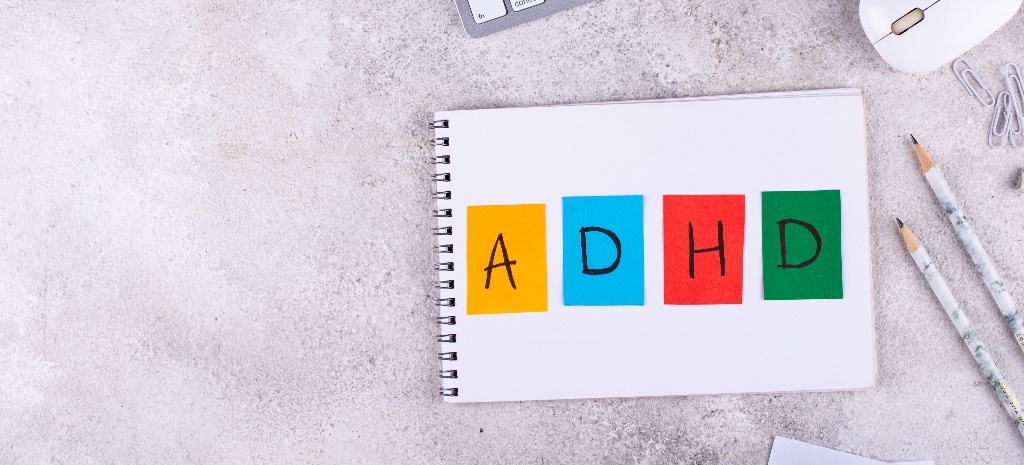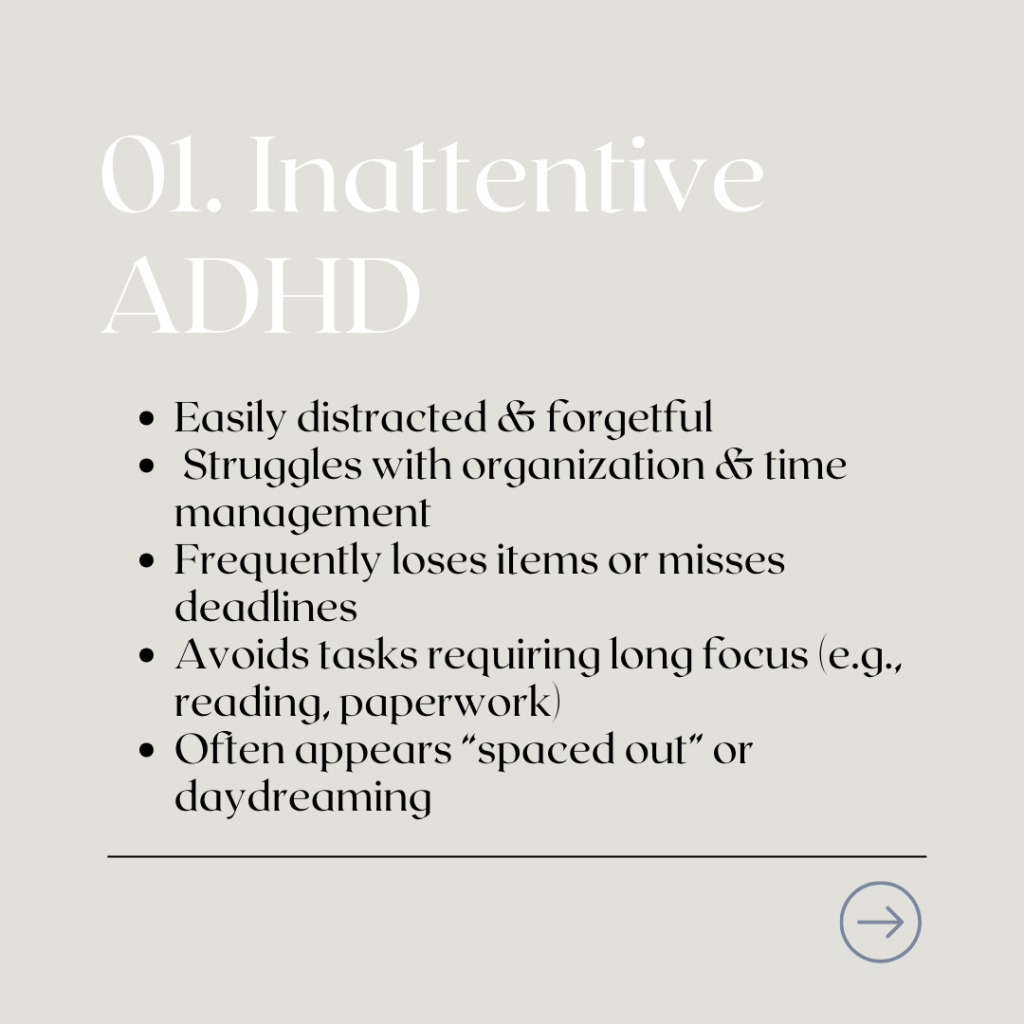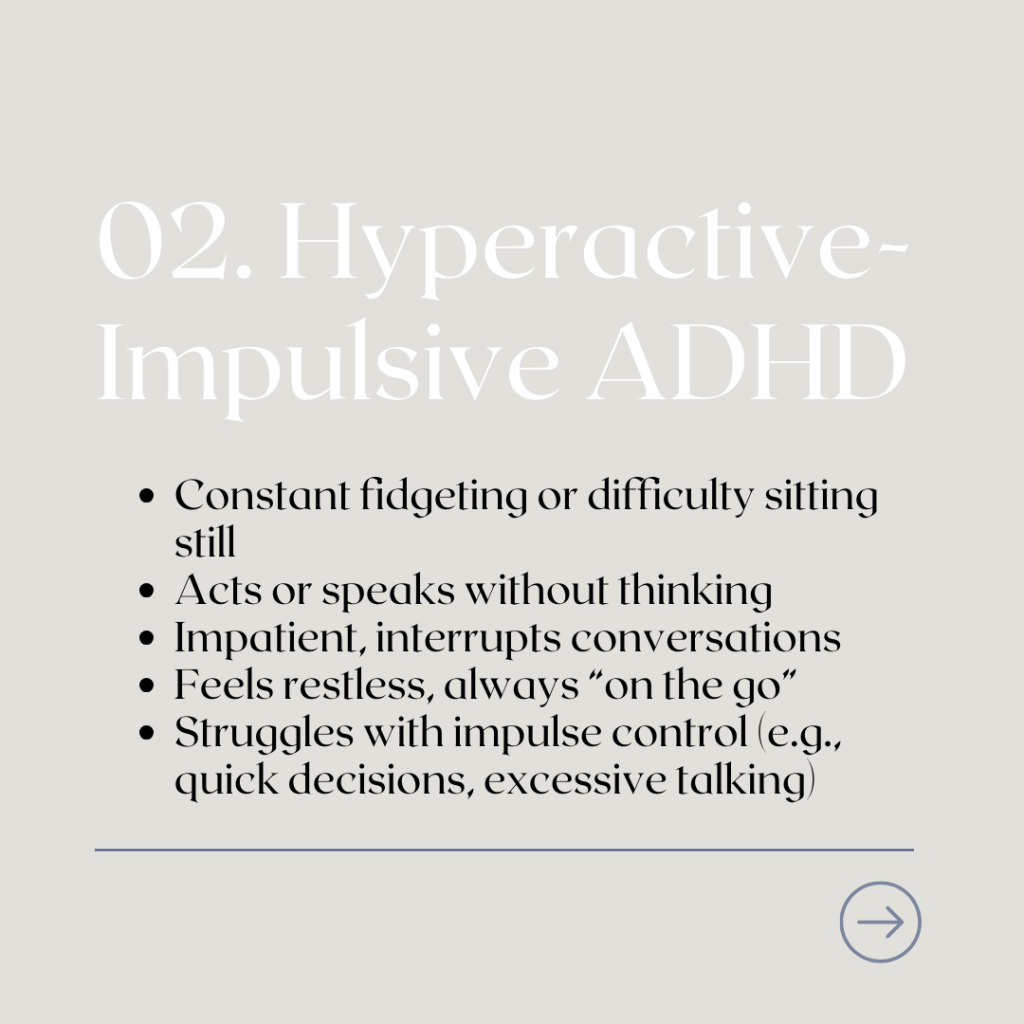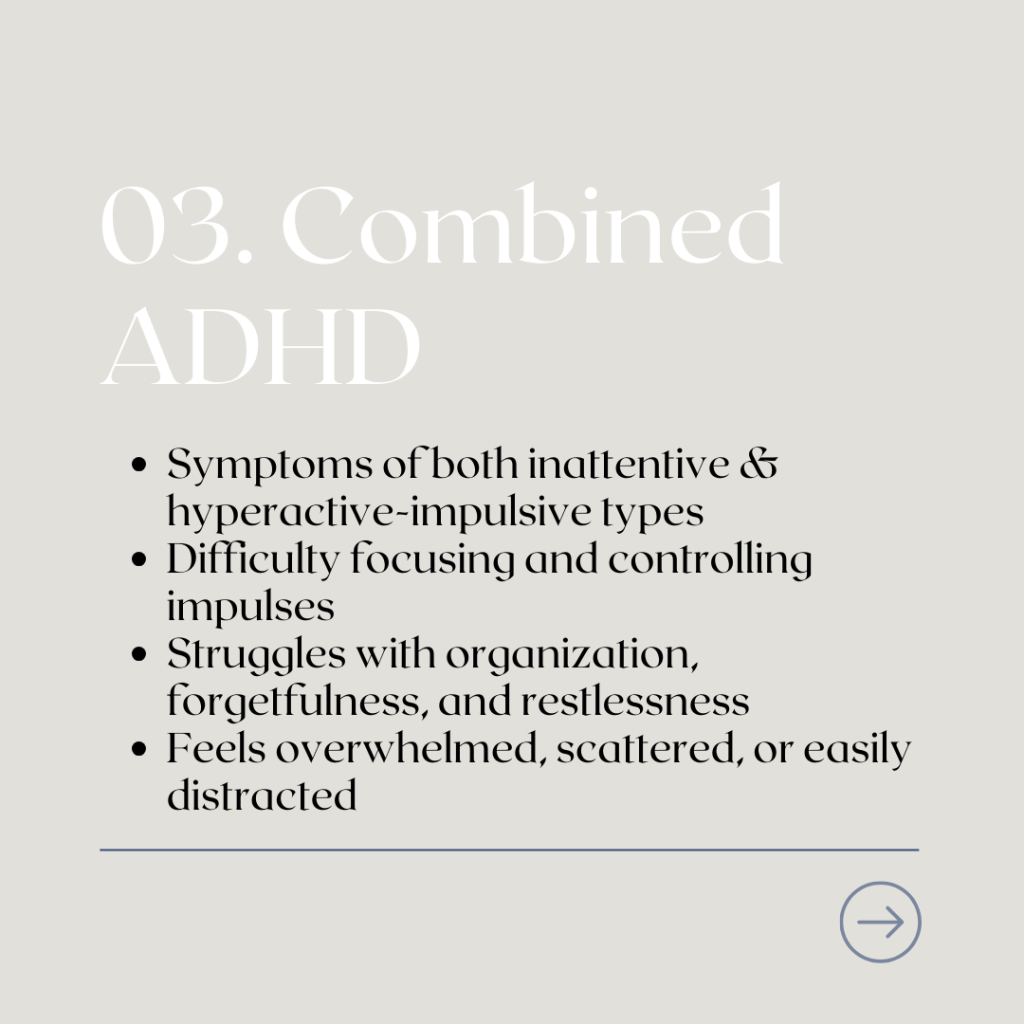Maybe you’ve always felt a little scattered—constantly misplacing your keys, zoning out during conversations, or struggling to finish what you started. Or perhaps someone close to you has pointed out that your forgetfulness, impulsivity, or difficulty focusing seems beyond the norm. If this sounds familiar, you might be wondering: Do I have ADHD?
Getting an ADHD diagnosis can feel overwhelming, but understanding the process can help you feel more confident about taking the next step. Whether you’re an adult just starting to connect the dots or a parent seeking answers for your child, this guide will walk you through what to expect.
Call (858) 923-4228 | Verify Insurance
Step 1: Recognizing the Signs

ADHD (attention-deficit/hyperactivity disorder) ADHD isn’t just about being hyper or forgetful—it presents in three different types, each with unique challenges. Some struggle mainly with inattention, others with impulsivity and hyperactivity, and many experience a mix of both. Understanding which type best describes your knowledge can help guide diagnosis and treatment.
Many adults don’t realize that chronic exhaustion and overwhelm may actually be signs of ADHD burnout rather than laziness or lack of motivation.
1. Inattentive ADHD (Formerly Known as ADD)
This type is marked by difficulty focusing, organizing, and remembering details rather than hyperactivity. It often goes unnoticed, especially in adults, because it doesn’t involve apparent physical restlessness.

Common symptoms:
- Frequently losing track of tasks or misplacing items
- Forgetting appointments, deadlines, or daily responsibilities
- Struggling with organization and time management
- Avoiding or procrastinating on tasks requiring sustained mental effort
- Becoming easily distracted by thoughts, surroundings, or noises
People with inattentive ADHD may appear “spaced out” or disorganized rather than disruptive, which is why it’s often overlooked.
2. Hyperactive-Impulsive ADHD
This type involves excess energy, impulsive actions, and difficulty with self-control. While hyperactivity is more noticeable in children, adults may experience it as an internal feeling of restlessness.
Common symptoms:
- Constant fidgeting, tapping, or difficulty sitting still
- Feeling restless or impatient, even in quiet settings
- Talking excessively or interrupting conversations
- Acting impulsively, such as making quick decisions without thinking
- Difficulty waiting in lines or taking turns in conversations
People with this type often feel “driven by a motor,” making it hard to slow down, relax, or stay on task.

3. Combined ADHD (Most Common Type)
Most individuals with ADHD experience a blend of inattentive and hyperactive-impulsive symptoms, leading to challenges in multiple areas of life.

Common symptoms:
- Struggling with focus and organization while also feeling restless
- Frequently losing items, missing deadlines, and talking over others
- Difficulty completing tasks without procrastination or distraction
- Feeling constantly overwhelmed, yet still jumping from task to task
For children, this may look like zoning out in class, blurting out answers, or excessive movement. In adults, it can lead to missed deadlines, impulsive decisions, and disorganized routines.
When Do These Symptoms Indicate ADHD?
Everyone gets distracted or restless sometimes, but with ADHD, these struggles are persistent, long-lasting, and interfere with daily life. If these symptoms have affected you since childhood and make it hard to stay organized, manage responsibilities, or maintain relationships, it may be time for an ADHD evaluation.
At KMN Psych, we provide comprehensive ADHD testing to help you understand your symptoms and develop effective coping strategies. Reach out today to take the next step toward clarity and support.
Call (858) 923-4228 | Verify Insurance
Step 2: Finding a Professional Who Can Diagnose ADHD
If you suspect you have ADHD, the best place to start is by reaching out to a facility that specializes in ADHD testing and neuropsychological evaluations, like KMN Psych. Our clinic provides comprehensive assessments for individuals aged 7 and up to help you get the clarity and answers you need. Our team uses standardized assessments, clinical interviews, and behavioral evaluations to determine whether ADHD is the cause of your symptoms—and, if so, what steps you can take next.
For individuals outside the San Diego area or those who aren’t able to access a neuropsych testing facility, here are other ways to find a professional for an ADHD evaluation:
- Ask your primary care doctor—they can refer you to a specialist.
- Check with your therapist—if they don’t diagnose ADHD themselves, they may know someone who does.
- Review your insurance provider’s directory—they often have a list of covered ADHD specialists.
- Search for local ADHD testing centers or neuropsychological testing facilities—Searching terms like “ADHD testing near me” or “neuropsychological testing for ADHD” can help you find options for facilities specializing in ADHD testing.
- Read reviews—finding a provider who understands ADHD and makes you feel comfortable is essential.
Seeking professional help can feel overwhelming, but our team is here to guide you through the process with care and expertise. If you’re unsure where to begin, we encourage you to call our office at (858) 923-4228 to discuss your concerns and schedule an evaluation.
Related: Where to Get Tested for ADHD
Step 3: The ADHD Evaluation Process
So, what happens during an ADHD evaluation? No, it’s not just a doctor watching you struggle to sit still for five minutes. The process is much more in-depth and usually involves multiple steps.
Related: How to Get Tested for ADHD

1. A Deep Dive Into Your History
Your doctor or psychologist will ask about your past, especially your childhood. That’s because ADHD symptoms usually appear before age 12, even if they weren’t recognized back then.
Expect questions like:
- What were your grades like in school?
- Were you often told to “pay attention” or “stop fidgeting”?
- Did teachers or parents say you were forgetful, impulsive, or easily distracted?
If you’re an adult, you might not remember everything, so some specialists ask to speak with a parent, sibling, or longtime friend to help piece together the puzzle.
Related: What Is Stimming?
2. Assessing Your Current Challenges
Next, your clinician will look at how ADHD affects you now. They may ask about:
- Work performance: Do you struggle with deadlines, forget assignments, or zone out in meetings?
- Daily life: Is keeping track of bills, appointments, or household tasks a constant challenge?
- Relationships: Do loved ones get frustrated with your forgetfulness or impulsivity?
You might also be asked to fill out behavior rating scales, which are questionnaires that compare your symptoms to those commonly seen in ADHD. To diagnose ADHD, a specialist looks for at least five symptoms of inattentiveness or hyperactivity that have been present since childhood and continue to affect your life today
Related: What Does It Mean to Be Neurodivergent?
3. Ruling Out Other Conditions
Because ADHD symptoms can overlap with those of other mental health conditions, a thorough evaluation also involves ruling out alternative explanations. Anxiety, depression, learning disabilities, and even certain sleep disorders can mimic ADHD symptoms or contribute to difficulties with focus, organization, and impulse control.
During your assessment, your clinician will ask about your mood, stress levels, and sleep habits to better understand your overall mental and physical health. For example, chronic anxiety can make it hard to focus because your mind is constantly racing with worry. At the same time, depression can lead to low motivation and forgetfulness, which may look similar to ADHD-related inattention. Sleep deprivation, whether from insomnia or an underlying disorder like sleep apnea, can also result in cognitive issues and difficulty concentrating.
4. Medical Exam (Sometimes)
While ADHD itself isn’t diagnosed through lab tests or physical exams, some medical conditions can cause symptoms similar to ADHD, making it essential to rule them out when necessary. If your clinician suspects a possible medical explanation for your difficulties with focus, memory, or energy levels, they may recommend a physical exam or lab tests to check for underlying issues.
For example, thyroid disorders—whether an underactive or overactive thyroid—can cause mood swings, trouble concentrating, fatigue, or restlessness, all of which can be mistaken for ADHD symptoms. Similarly, nutrient deficiencies, such as low levels of iron, vitamin B12, or magnesium, can impact brain function and attention. In rare cases, neurological conditions like seizure disorders can present with cognitive difficulties that resemble ADHD.
If any of these possibilities seem relevant, your clinician will guide you on the appropriate medical testing to ensure you get the correct diagnosis and the most effective treatment plan for your needs.
Step 4: What Happens After Diagnosis?
If you’re diagnosed with ADHD, what comes next? The good news is that ADHD is highly manageable with the right tools and support. Treatment usually includes a mix of:

1. Therapy
Many children and adults with ADHD benefit from cognitive behavioral therapy (CBT), a structured form of treatment that focuses on building practical skills for managing focus, organization, and impulse control. Rather than just talking through feelings, CBT provides actionable tools that help with real-life challenges—like structuring your day, improving time management, and reducing procrastination.
Therapy can also address the emotional side of ADHD, which is often overlooked. Many people with ADHD struggle with low self-esteem due to years of feeling “scatterbrained” or being told they just need to “try harder.” A therapist can help you work through frustration, improve self-confidence, and develop healthier coping mechanisms. Therapy can also help navigate relationship challenges—whether it’s improving communication with a partner or helping parents better support a child with ADHD.
2. Medication (If Needed)
Medication isn’t for everyone, but for many people with ADHD, it can be a game-changer in improving focus, impulse control, and executive functioning. There are two main categories of ADHD medications:
- Stimulants (such as Adderall or Ritalin) are the most commonly prescribed and work by boosting dopamine levels in the brain, which helps with focus and motivation.
- Non-stimulants (such as Strattera or Intuniv) are often recommended for those who don’t respond well to stimulants or prefer a different approach.
Finding the right medication—and the correct dosage—can take some trial and error. That’s why working with a knowledgeable psychiatrist or prescribing doctor is critical. They’ll monitor your response and adjust as needed to ensure you get the maximum benefits with minimal side effects. If you decide not to take medication, there are still plenty of other strategies to help manage symptoms effectively.
3. Lifestyle Changes & Coping Strategies
While therapy and medication can be valuable tools, daily habits and routines also play a huge role in managing ADHD. Simple adjustments can make everyday tasks more manageable and reduce feelings of overwhelm.
Here are some practical strategies that can make a difference:
- Use timers and reminders – ADHD brains thrive on external structure. Setting phone alarms, using scheduling apps, or even placing sticky notes in key places can help keep you on track.
- Break tasks into smaller steps – Large tasks can feel daunting, leading to procrastination. Breaking them into bite-sized steps makes them feel more doable (e.g., instead of “clean the house,” start with “put away laundry”).
- Exercise regularly – Movement isn’t just good for physical health—it boosts dopamine and helps regulate attention and mood. Even short walks or stretching breaks can help reset focus.
- Get enough sleep – ADHD and sleep issues often go hand in hand. Creating a consistent nighttime routine (like limiting screen time before bed) can improve focus and energy levels during the day.
Related read: What is high-functioning ADHD in women?
ADHD Testing in San Diego: What to Expect
At KMN Psych, we take a structured, multi-step approach to ADHD assessment to ensure you receive a thorough, accurate diagnosis.
- Initial Phone Screening – Before your in-person visit, we’ll conduct a phone consultation to discuss your concerns and determine whether a complete ADHD evaluation is the next step.
- In-Person Clinical Interview – You’ll meet with a specialist to discuss your symptoms, history, and how ADHD may affect your life. This conversation helps us understand your unique challenges beyond what standard tests can capture.
- Comprehensive Testing – Depending on your needs, you’ll complete a series of assessments, including verbal, digital, or written tests. These standardized tools measure attention, impulse control, memory, and executive functioning.
- Analysis & Interpretation – Our team carefully reviews and interprets the results, considering all aspects of your history, symptom patterns, and test performance.
- Detailed Written Report – You’ll receive an 15-20 page in-depth report outlining your results, potential diagnoses, and how your symptoms align with ADHD criteria.
- Follow-Up Consultation (Optional) – If you’d like, you can schedule a one-on-one meeting with Dr. Doshay to discuss your results in detail, ask questions, and explore treatment recommendations.
At KMN Psych, we don’t just hand you a diagnosis and send you on your way. We provide personalized guidance on the next steps, including treatment planning, therapy recommendations, and practical strategies for managing ADHD in daily life.
Taking the First Step

Getting an ADHD diagnosis isn’t just about putting a label on your struggles—it’s about understanding yourself better and finding ways to make life easier. If you’ve been struggling with focus, organization, or impulsivity, reaching out to a professional can be a life-changing step toward clarity and support.
At KMN Psych, we specialize in ADHD testing for children (ages 7+), teens, and adults, helping you gain the insights and tools you need to thrive. If you’re ready to take the next step, we’re here to help.
Call (858) 923-4228 | Verify Insurance
Frequently Asked Questions (FAQs)
1. How do I know if I have ADHD?
ADHD symptoms vary, but common signs include difficulty focusing, forgetfulness, impulsivity, disorganization, and restlessness. If these struggles persistently impact your daily life, work, or relationships and have been present since childhood, an ADHD evaluation may be helpful.
2. Can adults be diagnosed with ADHD?
Yes. While ADHD is often diagnosed in childhood, many adults go undiagnosed until later in life. If you’ve consistently struggled with focus, organization, or impulse control, a professional evaluation can help determine if ADHD is the cause.
Read More: Can You Develop ADHD As an Adult?
3. What are the three types of ADHD?
ADHD is categorized into three types:
- Inattentive Type (formerly ADD): Trouble focusing, forgetfulness, poor organization, and distractibility.
- Hyperactive-Impulsive Type: Restlessness, excessive talking, impulsive actions, and difficulty sitting still.
- Combined Type: A mix of inattentive and hyperactive-impulsive symptoms.
4. What steps are involved in getting an ADHD diagnosis?
The ADHD evaluation process typically includes:
- Initial consultation – A discussion about your symptoms and concerns.
- Comprehensive assessment – Standardized tests, behavior rating scales, and clinical interviews.
- Input from others – In some cases, a partner, parent, or close friend may provide additional insight.
- Rule out other conditions – Medical and psychological factors are considered to ensure an accurate diagnosis.
- Detailed report & recommendations – A breakdown of results, potential diagnosis, and next steps.
5. Who can diagnose ADHD?
ADHD should be diagnosed by a qualified professional such as a psychologist, psychiatrist, neurologist, or pediatrician. ADHD testing centers, like KMN Psych, specialize in neuropsychological evaluations for all children (aged 7+), teens, and adults.
6. What tests are used to diagnose ADHD?
ADHD diagnosis is based on a combination of:
- Clinical interviews
- Behavior rating scales (self-reported and from close contacts)
- Cognitive and executive functioning tests
- Review of personal, academic, and medical history
There is no single test for ADHD, so a thorough assessment is required.
7. How do I find an ADHD specialist near me?
If you suspect ADHD, you can:
- Call KMN Psych to schedule an evaluation.
- Ask your primary care doctor for a referral.
- Check with your insurance provider for covered specialists.
- Search for local ADHD testing centers or neuropsychological testing facilities.
8. Can ADHD be mistaken for other conditions?
Yes. Symptoms of anxiety, depression, sleep disorders, and learning disabilities can overlap with ADHD. A professional assessment helps determine whether ADHD is the cause or if another condition is contributing to your symptoms.
9. Do I need medication if I have ADHD?
Not necessarily. ADHD treatment varies and can include:
- Therapy (such as Cognitive Behavioral Therapy)
- Medication (stimulant or non-stimulant options)
- Lifestyle adjustments (organization strategies, exercise, sleep routines)
- Coaching or support groups
A professional can help create a personalized treatment plan based on your needs.
10. What happens after an ADHD diagnosis?
If diagnosed with ADHD, you’ll receive:
- A detailed evaluation report outlining symptoms and diagnosis.
- Recommendations for treatment (therapy, medication, or coping strategies).
- The option for a follow-up consultation to discuss next steps.
Getting diagnosed can be a turning point, allowing you to better understand your challenges and find strategies that work for you.
11. What should I do if I think I have ADHD?
If ADHD symptoms are affecting your daily life, seeking an evaluation is the best step. KMN Psych offers comprehensive ADHD testing to provide clarity and support. Contact us today to schedule an assessment.
Resources
Magnus W, Anilkumar AC, Shaban K. Attention Deficit Hyperactivity Disorder. [Updated 2023 Aug 8]. In: StatPearls [Internet]. Treasure Island (FL): StatPearls Publishing; 2025 Jan-. Retrieved Jan 28, 2025, from https://www.ncbi.nlm.nih.gov/books/NBK441838/
Fairman, K. A., Peckham, A. M., & Sclar, D. A. (2020). Diagnosis and Treatment of ADHD in the United States: Update by Gender and Race. Journal of Attention Disorders, 24(1), 10-19. Retrieved Jan 28, 2025, from https://doi.org/10.1177/1087054716688534
Children and Adults with Attention-Deficit/Hyperactivity Disorder (CHADD). (n.d.). Diagnosis of ADHD in adults. CHADD. Retrieved January 28, 2025, from https://chadd.org/for-adults/diagnosis-of-adhd-in-adults/
National Health Service (NHS). (n.d.). Attention deficit hyperactivity disorder (ADHD) – Diagnosis. NHS. Retrieved January 28, 2025, from https://www.nhs.uk/conditions/attention-deficit-hyperactivity-disorder-adhd/diagnosis/
Centers for Disease Control and Prevention (CDC). (n.d.). Diagnosis of ADHD. CDC. Retrieved January 28, 2025, from https://www.cdc.gov/adhd/diagnosis/index.html
